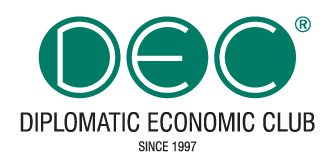Differences in labour costs among the EU states are great
Labour costs among the EU-27 ranged from about € 4 to almost € 40. Among the lowest are Bulgaria, Romania and two Baltic States (Latvia and Lithuania). The highest levels of salaries are in Sweden, Denmark, Belgium, etc. Although comparing labour costs is a complex issue, but somehow it shows the maturity of the welfare society, as average costs in EU are at the level of € 23-28.
According to Eurostat statistics for 2012, hourly labour costs ranged from € 3,7 to € 39,0 across the EU-27 member states. However average hourly labour costs in the whole EU economy (excluding agriculture and public administration) were estimated to be €23,4 in the EU-27 and €28,0 in the euro area (EU-17).However, the average figures mask significant differences between EU states, with hourly labour costs ranging from €3,7 in Bulgaria, €4,4 in Romania, €5,8 in Lithuania and €6,0 in Latvia, to €39,0 in Sweden, €38,1 in Denmark, €37,2 in Belgium, €34,6 in Luxembourg and €34,2 in France.
Eurostat acknowledged that when comparing labour cost in euro over time, it should be noted that data for the states outside the euro area are influenced by exchange rate movements.Within the business economy, labour costs per hour were highest in industry (€24,2 in the EU-27 and €30,3 in the euro area), followed by services (€23,7 and €27,6 respectively) and construction (€21,0 and €24,3). In the mainly non-business economy (excluding public administration), labour costs per hour were €22,9 in the EU-27 and €27,2 in the euro area.
Labour costs’ calculusLabour costs are made up of wages and salaries as well as non-wage costs such as employers’ social contributions. The share of non-wage costs in the whole economy was 23,7% in the EU-27 and 26,1% in the euro area, varying between 8,2% in Malta and 33,6% in France.
These preliminary estimates for 2012, published by Eurostat, the statistical office of the European Union, cover enterprises with 10 or more employees and are based on the 2008 Labour Cost Survey and the Labour Cost Index.
Growth in labour costsBetween 2008 and 2012, hourly labour costs in the whole economy expressed in euro have risen by 8,6-8,7 % among the EU-27 states.
However, within the euro area, the largest increases were recorded in Austria (+15,5%), Slovakia (+13,8%), Finland (+13,7%) and Belgium (+13,1%), and the smallest in Portugal (+0,4%) and Ireland (+0,8%). The only decrease was observed in Greece (-11,2%).For the states outside the euro area, and expressed in national currency, the largest increases in hourly labour costs in the whole economy between 2008 and 2012 were registered in Bulgaria (+42,6%) and Romania (+26,7%), and the smallest in Latvia (+1,3%) and the United Kingdom (+5,2%). The only decrease was observed in Lithuania (-1,4%).
Total Labour Costs cover wage and non-wage costs; they do not include vocational training costs or other expenditures such as recruitment costs, spending on working clothes, etc.Wage and salary costs include direct remunerations, bonuses, and allowances paid by an employer in cash or in kind to an employee in return for work done, payments to employees saving schemes, payments for days not worked and remunerations in kind such as food, drink, fuel, company cars, etc.
Non-wage costs include the employers’ social contributions plus employment taxes regarded as labour costs less subsidies intended to refund part or the entire employer’s cost of direct remuneration.
….
Eugene Eteris, BC’s International Editor Baltic-course.com










